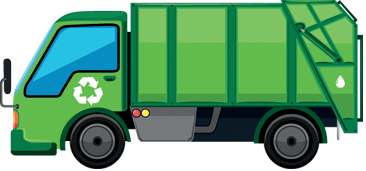According to new EU legislation as of twenty fifteen, UK households and businesses will be legally required to separate all recyclables from other rubbish prior to curbside collection. Paper, plastic, metal and glass will from now on be separated in order to facilitate easier and more efficient recycling.
The European Union regulations which are also valid and applicable in the UK, were brought upon by the need to meet the set target of fifty percent rubbish recycling rate by the year twenty twenty. Naturally, people are opposing this, perhaps not so much the effort and intent to improve and develop recycling, but opposing the need to do their own rubbish separation. This is understandable to an extent as there are UK local councils which are currently requiring residents to separate rubbish in nine different bins. Those opposing the new EU directives fear too many bins outside homes.
 Separating recyclables from general household rubbish is nothing new as the recently passed EU waste separation directives meet those already in place throughout many UK councils. In the case of Newcastle-under-Lyme in Staffordshire, locals are forced to separate nine different types of rubbish, namely food slops, clothing, paper, plastics, cardboard, food waste, cans and bottles, general rubbish, garden waste – a much more elaborate separation scheme than the one imposed by the EU. At the moment, twenty one local councils collect rubbish from seven or more bins, fifty eight local councils collect waste from six or more bins, and hundred and thirty six collect from five or more bins.
Separating recyclables from general household rubbish is nothing new as the recently passed EU waste separation directives meet those already in place throughout many UK councils. In the case of Newcastle-under-Lyme in Staffordshire, locals are forced to separate nine different types of rubbish, namely food slops, clothing, paper, plastics, cardboard, food waste, cans and bottles, general rubbish, garden waste – a much more elaborate separation scheme than the one imposed by the EU. At the moment, twenty one local councils collect rubbish from seven or more bins, fifty eight local councils collect waste from six or more bins, and hundred and thirty six collect from five or more bins.
Local councils are tasked with maintaining separate streams of recyclables in order to allow for higher quality raw materials through taking all reasonable steps. The problem for households and businesses is the effort and time it takes to separate each type of waste from general rubbish, and the fact that there will be even more bins waiting out the front for curbside collection each week. This issue has been resolved by some local authorities who have implemented the so called curbside sort system where rubbish is separated on the spot prior to collection.
Some local councils are worried about the overall cost of rubbish collection and disposal under the new EU regulations as more bins mean more collection time and money. For many local authorities the EU directive comes at a rather bad time as budgets are decreased, but waste management requirements are increasing in number and complexity.
One issue to be addressed is the quality of recyclates – a better separation system will ensure higher quality raw materials, as mentioned above people are worried and bothered by the complexity of rubbish separation rules. There was a proposal to supply residents with a separate plastic crate for each type of rubbish but that was dismissed as it would have created a serious storage space problem for many households. Thus the problem of effective rubbish separation still remains.
Community groups, local councils and waste management experts are working together in devising and implementing an efficient and resident-friendly method of separating rubbish prior to collection.

